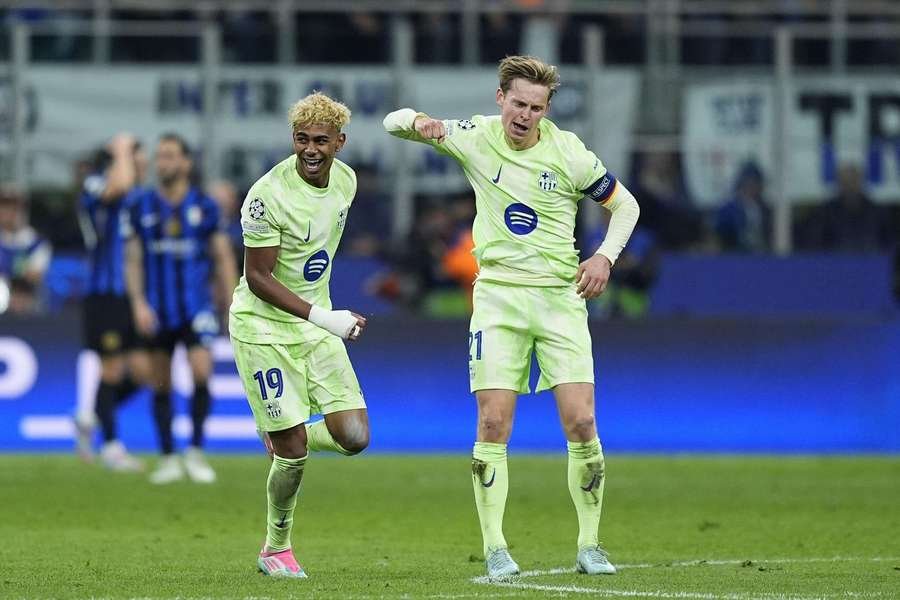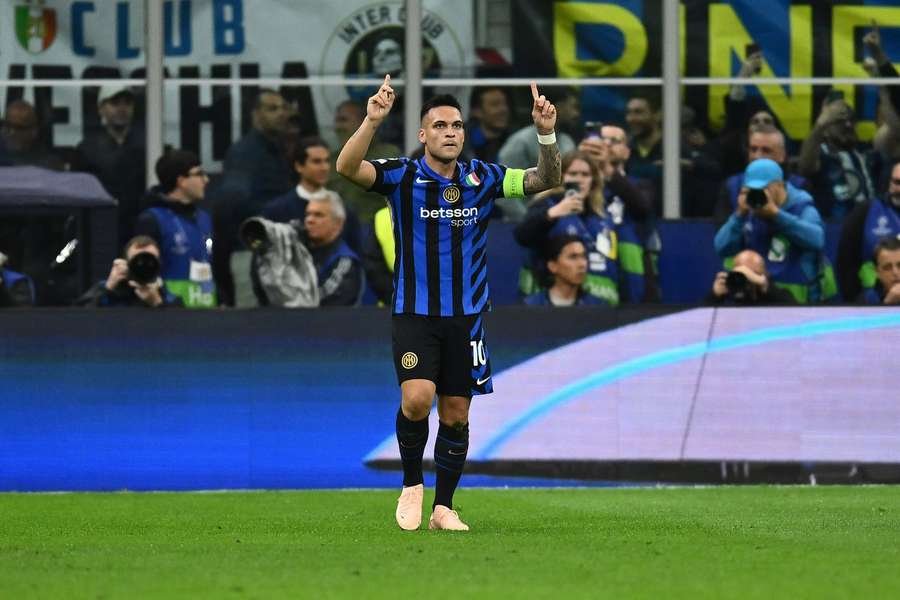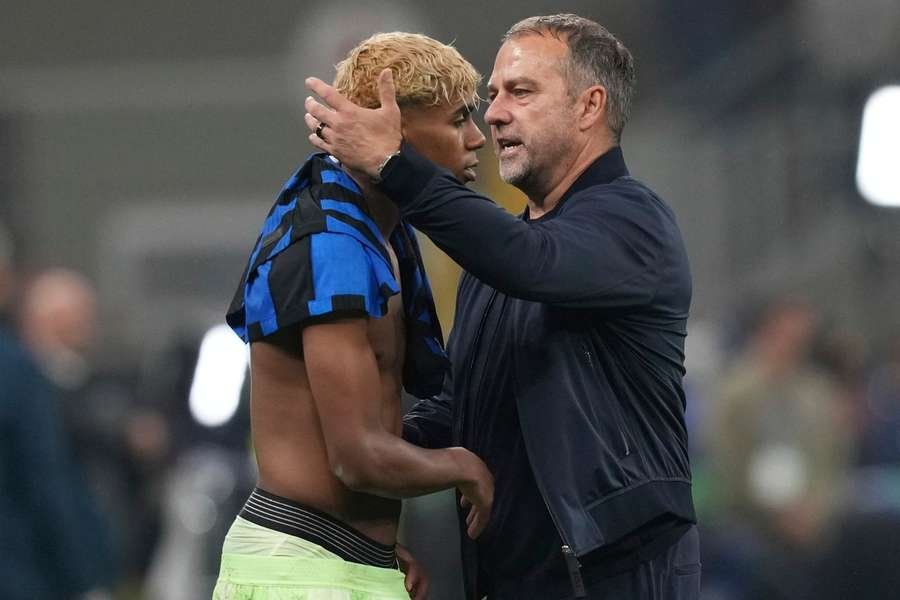Leading up to the clash with Internazionale, it was understandable for Barcelona to feel a hint of apprehension.
Before the Champions League semi-final second leg on Tuesday night, the Catalans had secured only one victory from their last six away encounters against Inter (D3 L2), with their sole win being a 2-1 success in December 2019.
The Nerazzurri were in formidable form, remaining unbeaten in their last 15 home Champions League fixtures (W12 D3)—the longest unbeaten streak at home in major European contests since their 27-match run between 1980 and 1987. They had also triumphed in nine of their last 11 home semi-final matches in Europe (D1 L1).
Goals seemed a certainty at San Siro
Moreover, Barcelona’s away record in Italy wasn’t promising, with only five victories in 24 attempts (21%), marking their lowest win rate in any country outside Spain during the competition.
The prospect of goals seemed likely, as the last two encounters between the teams (in October 2022 and the first leg of this season) had ended in sensational 3-3 draws. Additionally, Barca had already netted 40 times in this season’s competition—the most by any team in a single season since Hansi Flick’s Bayern Munich in 2019/20 (43).

This twelfth major meeting in European competition also positioned it as the fourth-most frequent fixture in UCL history, behind Bayern Munich vs Real Madrid (28), Juventus vs Real Madrid (21), and Inter vs Real Madrid (19).
Barcelona were keen to rely on their young star, Lamine Yamal, to guide them towards a potential sixth final. Before this match, his tally of 44 shots, including 19 on target and 78 successful dribbles, had already set records for a teenager in a single season stretching back to 2003/04.
The scene was certainly primed for another captivating matchup…
Barcelona’s early control didn’t yield results in the first half
While Inter seemed more aggressive in the initial moments, it was Barcelona who controlled the rhythm, boasting 69.4% possession in the first 15 minutes.
Yet, it was Inter who struck first. Denzel Dumfries assisted Lautaro Martinez, who scored on the 21-minute mark, marking his ninth goal in this season’s Champions League—making him the top scorer for Internazionale in a single edition, surpassing Samuel Eto’o’s eight goals in 2011.

The contentious penalty awarded to Inter just before half-time marked their seventh in this season’s competition—the highest of any team. Hakan Calhanoglu’s successful conversion was the 12th first-half goal conceded by Hansi Flick’s Barcelona in just 14 UCL matches this season, with only Feyenoord (13) and PSV (13) allowing more.
Despite sharing 15 touches in Inter’s box, complementing their opponents’ efforts, Barcelona’s six shots fell just short of Inter’s eight during the first half.
With both sides executing nine dribbles and achieving identical success rates of 44.4%, Flick would have been unpleased with his team’s failure to capitalise on their possession dominance before half-time, which saw them control the ball 67.5% of the time, achieving 86.8% passing accuracy but failing to score.
Impressive rally ultimately fell short
As the hour mark approached, Barcelona clawed their way back into the fixture with a magnificent volley from Eric Garcia and a soaring header from Dani Olmo, marking his first goal in the competition since the match against Brest on 26 November.
With 44.1% of the action occurring in Internazionale’s third during the first 15 minutes of the second half, and Barcelona registering 75.2% possession during that period, it was apparent the match had turned in their favour.
Raphinha capitalised on a fortunate rebound from his shot, bringing his goal tally in the 24/25 Champions League season to 13—the highest of any player. Many football fans would have been in awe of another comeback, expecting Barcelona to progress to the final.
Frenkie de Jong completed 125 passes and Lamine Yamal had nine shots, both lead the team’s stats in this competition this season—impressive achievements against an Inter side well-known for their defensive prowess. However, it wasn’t enough to secure a positive result.
Goals from Francesco Acerbi, now the second oldest player at 37 years and 85 days to score in a UCL semi-final—behind only Ryan Giggs’ record for Manchester United against Schalke in 2010/11 at 37 years and 148 days—and another from Davide Frattesi ensured Inter advanced from the equal-highest scoring semi-final tie in Champions League history (alongside Liverpool’s 7-6 win over Roma in 2017/18).
An extraordinary semi-final tilted in Barcelona’s favour statistically
This elimination marked Barcelona’s eighth time falling at the semi-final hurdle, equalling Real Madrid for the most by any team. Their impressive haul of 43 goals in the competition is only surpassed by their own tally of 45 in the 1999/00 season.
If Hansi Flick seeks reasons why his team failed to reach the final, conceding 24 goals—an all-time high for Barcelona in a Champions League campaign—would certainly be a telling factor.

Despite outperforming Inter in most statistics—excluding tackles attempted, won, and interceptions—Barcelona found themselves on the losing end.
Some statistics bordering on ludicrous—like possession (71.2% compared to Inter’s 28.8%) and total passes (772 to 313)—left Flick scratching his head, questioning how a side so dominant could still find themselves eliminated.
For neutrals, this two-legged tie will be remembered as one of the most thrilling in Champions League history.

Compiled by SportArena.com.au.
Fanpage: SportArena.com.au.
LiveScore – Live Sports Results & Odds.




